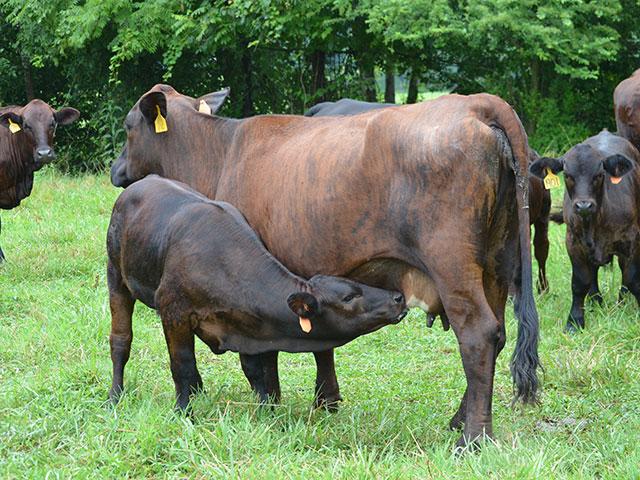Ask the Vet
Sneaky 'Robber Calves' Steal Colostrum
READER QUESTION:
I've had two cases where a calf starts nursing off two cows: its actual dam and what I call a "wet nurse." The trouble is this wet nurse is going to be having her own calf in a few days, and I'm concerned about the effect this will have on her colostrum supplies. Did this little robber get all the good stuff?
DR. MCMILLAN'S ANSWER:
Interesting question, and I can find no conclusive research on the issue. What we do know is that colostrum is only produced once per pregnancy -- starting a few weeks in advance of calving and accelerating as calving approaches. Each case would be different as to how much colostrum a cow produces and how much is lost to a "robber" calf.
P[L1] D[0x0] M[300x250] OOP[F] ADUNIT[] T[]
The best assumption would be that the actual calf of that cow would be at higher risk for failure of passive transfer (FPT). This lack of passive immunity increases the risk of neonatal calf diseases, especially of the gastrointestinal and respiratory tracts, and has been shown to have negative effects all the way to the feedlot.
To protect the new calf, one good option would be a colostrum replacer containing at least 100 grams of immunoglobulin G (IgG), given within the first few hours of life. This is something we recommend for any calf at risk of FPT. Some suggest 150 to 200 grams may be a better number. Keep a few bags around during calving season. It's a good insurance policy.
Remember, there are colostrum supplements on the market that typically contain a half or less of the IgG of replacers. Supplements often cost less, but replacers contain enough IgG to get a calf's serum IgG levels to at least 10 mg/ml even in the event the calf receives no colostrum at all. There are no "do-overs" after the first 24 hours of a calf's life, so I would spend the extra money for a high-quality colostrum replacer.
**
Editor's Note:
Please contact your veterinarian with questions pertaining to the health of your herd or other animals. Every operation is unique, and the information in this column does not pertain to all situations. This is not intended as medical advice but is purely for informational purposes.
Write Dr. Ken McMillan at Ask the Vet, 2204 Lakeshore Dr., Suite 415, Birmingham, AL 35209, or email vet@progressivefarmer.com.
(c) Copyright 2023 DTN, LLC. All rights reserved.





